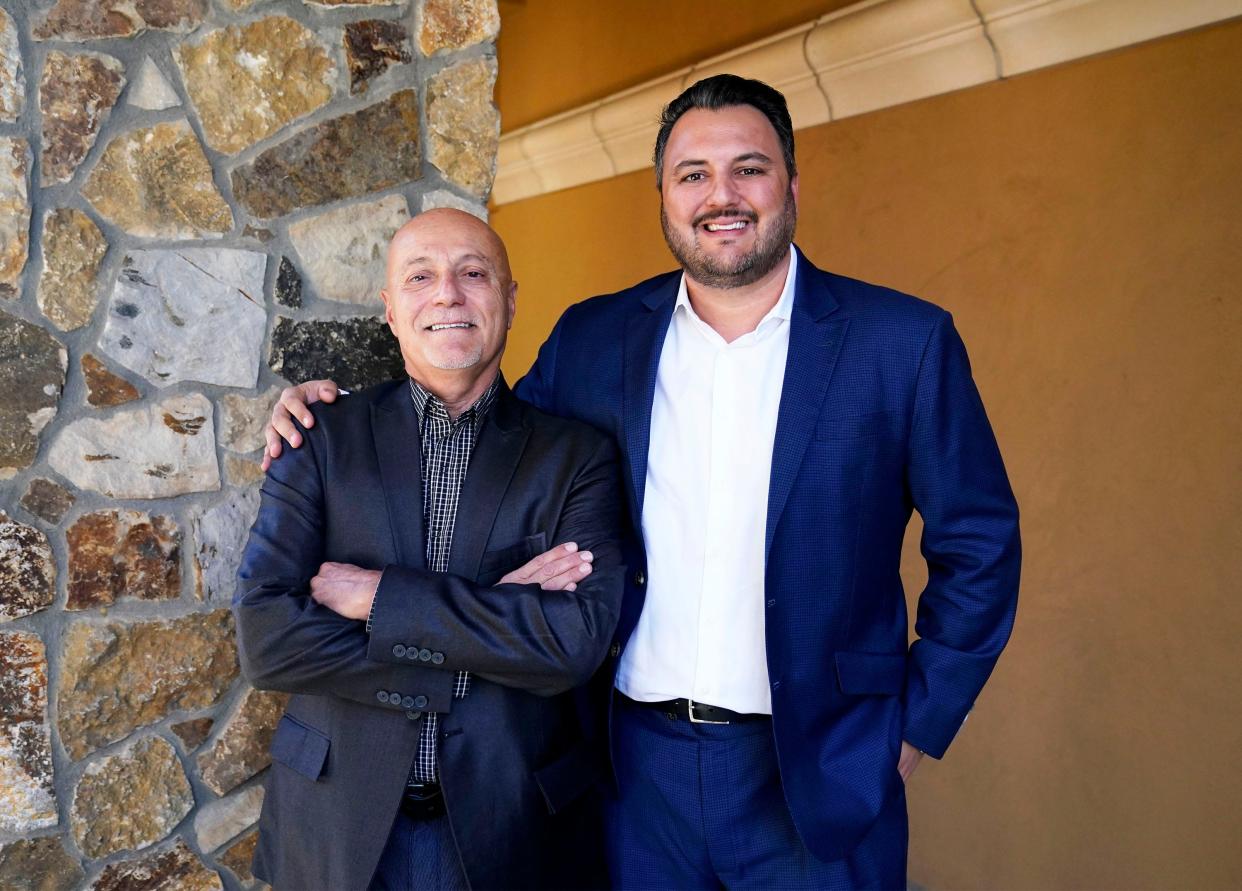Scottsdale attorney helps Afghan immigrants in honor of father who fled Iranian revolution

Darius Amiri grew up hearing about how his family escaped Iran when the revolution of 1979 transformed the country into an Islamic state. As a child, he and his siblings would boast to friends that their father "escaped the revolution.”
So perhaps it is fitting, years later, that the boy would become an immigration attorney and help Afghans targeted by the Taliban make a home in the United States.
Darius, who works for the Rose Law Group in Scottsdale, is representing six Afghans, and some of their immediate family members, who are in danger because they either aided the U.S. during the war or held a position in the previous Afghan government.
Darius has succeeded in helping one Afghan interpreter, who worked with American combat troops, get out. The interpreter and his fiancée, surrounded by crowds and chaos amid the American withdrawal in August, spent six days outside the Kabul airport before boarding an airplane to the U.S.

The Scottsdale attorney is trying to help others, but he said the future looks grim for those who didn't get out immediately.
"One of the guys we're helping, I got news that some pro-Taliban forces came to their house looking for him and killed his little brother. I've lost contact with one who was a female Afghan police officer who feared for her life," he said.
If the others are unable to leave, it's likely they will "either be imprisoned, tortured or killed or have to live on the run and in fear for probably the rest of their lives. Even if you do survive, that's no way to live life," Darius said. "That fear compels me to try to help as many people as I can."
It's an effort his own father knows well.
Escaping Iran
Darius' father, John Amiri, left Iran on July 14, 1979.
That was five months after former Supreme Leader Ayatollah Ruhollah Khomeini's forces took over the country, and four months before protesters would overrun the U.S. Embassy in Tehran and take the personnel there, more than 50 Americans, hostage for over a year.
John was able to leave Iran because he went to the embassy with his American wife and got his visa in time.
More than 40 years later, he is proud of his son.
"He is making a difference. I mean, could he have gone into a different profession? Of course. Does he have friends and peers that make tons more money than he does? Yeah. But do any of them really make a difference in the world like he does? No," he said.
John was born in Tehran in 1953 but spent his early years in Washington, D.C.. while his father served as a diplomat. He finished high school in Iran but returned to the U.S. for college.
After earning a bachelor's degree, John met his wife, Janet, while getting his MBA. They were married and moved to Iran in 1977 because he, like any other Iranian man between 18 and 34 at the time, had to serve in the military.
At first, the young newlywed's life in Iran was good.
"Iran, especially for an educated person, it was nirvana. It was the most booming economy in the world and people that were educated in Europe and in the U.S., they'd just gobble them up," John recalled. "It was the best place to develop your career, to make money, just it was a fantastic place."
They established themselves in Tehran, and after John finished his military training, he worked in the private sector as he also served his time as a military officer.
He worked as the assistant to the president of a multinational footwear company. Janet, who is an artist, became a curator at the Tehran Museum of Contemporary Art.
But the good times didn't last.
Protests and riots against the Shah of Iran's regime erupted in August 1978. Martial law was declared a month later. And the U.S.-supported Shah's government collapsed in February.
The one "good thing" for John was the new regime's announcement that lower military officers like himself only needed to serve one year. He immediately got his dismissal papers and went to the U.S. Embassy with his wife to obtain visas to return to the U.S.
Looking back, he said if that hadn't happened, he would probably have been sent to the front lines of the Iran-Iraq war, which started in 1980, and died in combat.
John knows many were not as lucky. One of his closest friends, a nuclear scientist, killed himself when he could no longer follow his dreams in Iran.
John's sister, Roshy, who had just married into an influential Iranian family, had to be smuggled on camelback to neighboring Pakistan. Once she escaped, she and her husband were able to get their paperwork in order to follow her brother to the U.S.
Escaping Afghanistan
His aunt's story reminds Darius of what many Afghans face.
Since there aren't American consular services in Afghanistan anymore and the Taliban guards all exit points, endangered Afghans' only way out is to be smuggled into a neighboring country, he said.
"My dad was lucky to be able to come to the United States. And I think most people who are in the United States, whether they immigrated here or were born here, should realize how lucky they are," he said.
Darius pointed to one of the most gripping images from the Kabul airport in August: a parent handing a baby to a U.S. soldier in the midst of the chaos.
"There are people who would throw a baby into the arms of an unknown military officer just with the hopes of a better future in America," he said.
The attorney said it wasn't just his family's story that led him into immigration law. He speaks Spanish and grew up taking trips to Mexico and being exposed to different cultures.
"I'm grateful to be raised in a multicultural household where I understood that something like America shouldn't be taken for granted. I want to try to do my best to help other people access that, too."
Reach the reporter at rclo@arizonarepublic.com or at 480-267-4703. Follow her on Twitter @renataclo.
Support local journalism. Subscribe to azcentral.com today.
This article originally appeared on Arizona Republic: A Scottsdale man, whose dad fled Iran in 1979, helps Afghan immigrants

